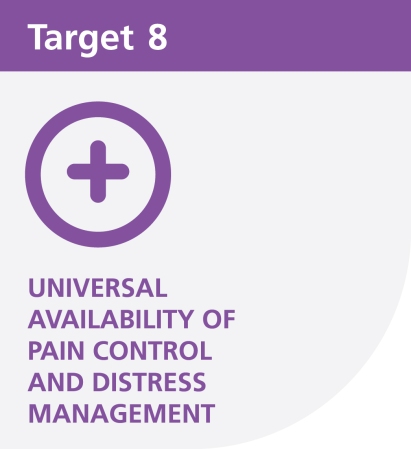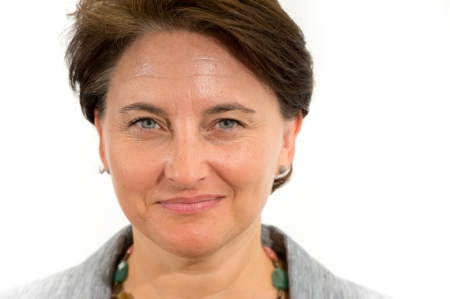Palliative care and cancer organisations unite …
Julie Torode, PhD, Director of Advocacy and Programmes and Deputy CEO, Union for International Cancer Control (UICC), says that 2014 is the year to increase momentum for national action on availability and access to palliative care services. She also explains why UICC is proud to be a founding partner to the Prague Charter.
So why did we sign the Prague Charter?
When considering UICC’s suite
of global programmes in 2009, it was the issue of access to pain relief
that we felt was a fundamental of cancer control for all countries. I am
often asked where do we start on a national cancer control plan? I
respond – if you have nothing, start with tobacco control and palliative
care services.
For this reason, and in direct response to the World Cancer
Declaration target 8 which aspires to universal access to pain relief,
our then President, Dr David Hill, initiated the Global Access to Pain
Relief Initiative (GAPRI). At the 2013 World Cancer Leaders’ Summit last
November, UICC launched a refreshed version of the World Cancer Declaration.
The new target 8 is: Effective pain control and distress management services will be universally available
 This
change echoes very much the essence of the Prague Charter with the
emphasis on suffering and distress in all forms, including pain, and
demonstrates a shift in our messaging at UICC to a holistic approach to
palliative care, rather than pain management in isolation.
This
change echoes very much the essence of the Prague Charter with the
emphasis on suffering and distress in all forms, including pain, and
demonstrates a shift in our messaging at UICC to a holistic approach to
palliative care, rather than pain management in isolation.
Why are we encouraging our members to sign up to the Prague Charter?
This is a new advocacy tool for 2014 – a year with exciting promise for real progress in the field of palliative care. I feel strongly that the progress we have made since the 2011 High Level Meeting on noncommunicable diseases (NCDs) is very much to do with our united voice on the global political stage, together with partners such as the European Association for Palliative Care. Together we have been able to achieve:
This is a new advocacy tool for 2014 – a year with exciting promise for real progress in the field of palliative care. I feel strongly that the progress we have made since the 2011 High Level Meeting on noncommunicable diseases (NCDs) is very much to do with our united voice on the global political stage, together with partners such as the European Association for Palliative Care. Together we have been able to achieve:
- The global monitoring framework on NCDs includes an indicator on access to morphine
- The omnibus resolution on NCDs signed off in May 2013 included a global commitment to improving palliative care services in the WHO Global Action Plan for the Prevention and Control of NCDs; and
- 2014 will see a World Health Organization (WHO) resolution dedicated to palliative care, which is being drafted as we speak for the WHO Executive Board meeting which begins on Monday 20 January, and will prepare the agenda for the World Health Assembly in May this year.
UICC’s purpose statement
stresses the promotion of greater equity. 2014 is a key year for
embedding palliative care in development debates and striving for
improved access to and availability of palliative care services for all.
I strongly recommend we repeat this close partnership between cancer
control and palliative care advocates to urge for action at national
level.
Coming up…
Please follow the blog next week when we plan to publish news about the outcomes of the WHO Executive Board Meeting which takes place next Monday 20 January.
Please follow the blog next week when we plan to publish news about the outcomes of the WHO Executive Board Meeting which takes place next Monday 20 January.
To find out more about the Prague Charter…
Initiated by the European Association for Palliative Care, the International Association for Hospice & Palliative Care, the Worldwide Palliative Care Alliance, Human Rights Watch and the Union for International Cancer Control, the Prague Charter urges governments to relieve suffering and recognise palliative care as a human right.
Initiated by the European Association for Palliative Care, the International Association for Hospice & Palliative Care, the Worldwide Palliative Care Alliance, Human Rights Watch and the Union for International Cancer Control, the Prague Charter urges governments to relieve suffering and recognise palliative care as a human right.

No comments:
Post a Comment